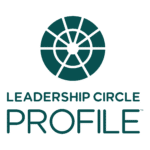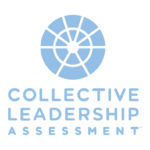The Value of Assessment Tools in Coaching
Assessment tools are an integral part of coaching. They enable coaches to gain a deep understanding of their clients’ needs, strengths, and weaknesses, allowing for tailored coaching strategies that accelerate client growth. By providing a means for benchmarking and progress monitoring, assessment tools can help add structure to your coaching sessions, closing the gap between where your client is and where they want to be. Ultimately, an efficient and effective coaching process leads to successful outcomes and greater client satisfaction. Yet, the challenge remains in selecting reliable and effective assessment tools that are compatible with your coaching practice. In this guide, we’ll discuss a broad spectrum of coaching assessment tools, exploring their uses, benefits, and the key dimensions they measure. Whether you are looking to deepen your understanding of your clients, track their progress more effectively, or differentiate your services in a competitive market, the right assessment tools can make all the difference.
Types & Applications of Coaching Assessment Tools
Whether you’re exploring leadership skills in an executive context or emotional intelligence in personal development scenarios, the tool’s specific purpose and relevance to client goals are paramount when deciding which tool will most benefit your clients. Below is a list of the main types of assessment tools based on what they’re designed to measure, our top picks in each category, and how they can be applied in coaching.
- Leadership
- Personality
- Emotional Intelligence
- Values
- Motivation/Behavior
- Strengths
- Cognitive Ability
- Interests
- Team Assessments
Leadership Assessments – Evaluates clients based on established competencies known to correlate with effective leadership. Though leadership development coaching can be its own specialty, this type of coaching is both widely applicable and beneficial for a broad spectrum of clientele. As leadership skills are fundamental to personal and professional development, these assessments find utility in diverse contexts such as life coaching, career coaching, executive coaching, and team coaching.
Personality Assessments – Helps in understanding an individual’s characteristic patterns of thoughts, emotions, and behaviors. Offers a deep understanding of how personal traits affect interactions and behaviors. These insights can help coaches tailor their coaching strategies to leverage client strengths and preferences, and identify environments where clients can thrive and achieve fulfillment.
Emotional Intelligence Assessments – Measures how well individuals can manage their own emotions and understand the emotions of others. Coaches can use these tools to better understand their clients emotional strengths and weaknesses and create targeted interventions that help clients achieve personal and professional success, leading to more effective and meaningful coaching outcomes.
Values Assessments – Helps reveal what individuals prioritize based on their underlying values, which can influence their decision-making and motivations. By helping clients to understand and articulate their values, coaches can help clients identify and address value conflicts that may be causing stress or hindering progress. This understanding can also help guide decision-making and goal setting initiatives that are in alignment with the client’s core values. This approach can not only increase client commitment but also motivation and fulfillment.
Motivation & Behavior Assessments – Examines the forces that drive an individual’s actions. By identifying what fundamentally drives a client, coaches can tailor their approaches to align with this understanding. This personalization makes coaching sessions more relevant and effective, ultimately creating more impactful outcomes.
Strengths Assessments – Helps uncover an individual’s top talents, which can be leveraged to achieve success and fulfillment in various aspects of life. Coaches can leverage results to help clients maximize their strengths, manage weaknesses, increase confidence, and accelerate progression toward client goals.
Cognitive Ability Assessments – Encompasses a broad range of mental processes and capabilities such as memory, reasoning, problem-solving, and comprehension. Coaches can leverage these insights to create targeted development plans aimed at enhancing clients’ analytical skills and preparing clients for complex professional challenges to support career advancement and personal growth. By recognizing and validating clients’ cognitive abilities, coaches can help guide clients toward opportunities that align with the clients natural abilities and potential for growth
Interests Assessments – Identifies passions and preferences, helping to guide life decisions such as which professions they are likely to enjoy. Coaches can use these insights to guide clients in discovering career paths that align with their interests, leading to higher job satisfaction and fulfillment
Team Assessments – Unlike individual assessments, team assessments are specifically designed to evaluate the collective functioning of a group, providing insights to how a team relates to and functions as a cohesive unit by measuring underlying factors that drive or hinder team success. These valuable insights guide team development initiatives by helping coaches to create targeted strategies to enhance overall performance. To learn more, check out our post below, dedicated to this topic.
Choosing the "Right" Assessment for Your Clients
Choosing the “right” coaching assessment tools for your practice is a strategic decision that hinges on the unique needs of your clients and the specific capacities you aim to enhance. When deciding which assessment tools to use, coaches should start with a base understanding of what they’d like to measure, guided by their client objectives.
Furthermore, it’s important to consider the tools’ specific purpose and how it can be adapted to different types of coaching interventions. For example, a leadership assessment can find application in multiple contexts such as executive coaching, life coaching, or career coaching depending on client needs. As a coach, your role is to identify the essential skills and attributes that shape your clients’ success profiles and select assessment tools that are specifically designed to evaluate these qualities, effectively bridging the gap between their goals and your coaching strategies.
Evaluating Assessment Reliability & Validity
In the dynamic field of coaching, the tools and methods we choose can significantly impact the outcomes of our coaching engagements. Therefore, when selecting tools for your practice, it’s imperative to distinguish between assessment tools that are evidence based and those that are not. Assessment tools are often evaluated in terms of their scientific reliability and validity. While validity considers the effectiveness of an assessment in measuring what it was designed to measure, reliability evaluates an assessment’s ability to produce accurate and consistent results over time in a variety of scenarios.
Many coaching assessment tools lack the scientific backing necessary to make these claims, capable of providing only surface-level, inferred insights. These tools often do not undergo the same level of scrutiny as evidence based tools regarding their reliability and validity, making them less dependable. As such, relying on such tools may result in misguided strategies that do not accurately address client needs or potential.
While all of the coaching assessment tools presented in this guide are highly regarded and widely used in the coaching community, it’s important to note that only select assessment tools meet the criteria to be considered evidence based in terms of their validity and reliability. If available, this information will be listed for each assessment featured.
Common Administrative Formats
There are two, primary administrative formats when it comes to coaching assessments, each with their unique advantages:
Self-Assessments: allow individuals to evaluate themselves, focusing on their perceptions of their own skills, behaviors, and impacts. These assessments encourage introspection and self-reflection, making them valuable for personal growth and self-awareness.
360 Assessments: also known as multi-rater feedback, involve collecting insights and feedback about a client from a comprehensive circle of people who interact with them in their professional environment. This circle typically includes not only self but also managers, peers, and subordinates. The key benefit of 360 assessments is that they offer a well-rounded perspective on the individual’s skills, behaviors, and impact, providing insights that might not be visible from a single viewpoint.
Top Coaching Assessment Tools
The following assessments have been selected as top picks for coaching applications due to their widespread use, high reputation, and versatility. Many, though not all, of these instruments are grounded in rigorous scientific research, undergo extensive testing, and are supported by empirical data to ensure their reliability and/or validity.
Leadership Assessments

Description: The Leadership Circle Profile™ measures the underlying beliefs and assumptions that drive our leadership behavior. It is the only instrument that assesses both the Creative Competencies that make leaders effective and the Reactive Tendencies that undermine a leaders success. As a 360 Assessment, the LCP relies on both personal and multi-rater feedback to give a truly comprehensive view of your client’s leadership effectiveness. Results are synthesized in real time, instantly revealing the most impactful insights.
Coaching Applications: By assessing clients against a battery of well-researched competencies that comprise leadership effectiveness, coaches can create highly informed and effective coaching strategies that strengthen leadership ability, enhance performance, support career advancement, and influence organizational success.
Format: 360° Assessment
Special Requirements: Certification required to administer and interpret
Evidence-Base: Confirmed by the Institute for Psychological Research and Application (IPRA) as an “internally consistent, valid measure for leadership development.” See Instrument Validation Study
Additional Resources:
Pricing: Contact provider for details. Limited, free self-assessment available.

Description: Similar to the Leadership Circle Profile™ mentioned above, the CLA is built on the same proprietary model but measures leadership effectiveness at a collective level and provides a powerful lens on the dynamics at play within groups and teams. This assessment gathers perceptions of all members to evaluate the leadership effectiveness of groups from department levels to entire organizations.
Coaching Applications: By understanding the collective leadership impact of groups and teams, coaches can identify targeted developmental opportunities that directly influence group dynamics. This focused approach enhances team cohesion and productivity, ultimately driving organizational improvement and success.
Format: 360° Assessment
Special Requirements: Certification required to administer and interpret
Evidence-Base: Based on the same proprietary model as the Leadership Circle Profile which was found to be internally consistent and a valid measure for leadership development. See Instrument Validation Study
Pricing: Contact provider for details
Personality Assessments
Description: Assesses personality type based on the Five-Factor Model of personality. This personality assessment captures key behavioral tendencies and helps individuals understand how they relate to others.
Format: Self-assessment
Special Requirements: Certification required to administer and interpret
Evidence-Base: See Aligning Hogan Scales with Competencies
Pricing: Contact provider for details
Description: Assesses four main personality profiles: Dominance, Influence, Steadiness, and Conscientiousness. Helps individuals understand their behavior and communication styles.
Format: Self-assessment
Special Requirements: None although certification is recommended to enhance interpretation skills
Evidence-Base: See Science Behind DISC®
Pricing: Contact provider for details
Description: Provides insights into a person’s emotional outlook and behavioral patterns across nine personality types. Helps individuals understand themselves better in terms of their emotional, mental, and behavior patterns.
Format: Self-assessment
Special Requirements: None
Evidence-Base: Not available
Pricing: Free for the basic version though a paid upgrade is required to access the “full report.”
Emotional Intelligence Assessments
Description: Assesses five distinct aspects of emotional and social functioning which include stress management, self-perception, self-expression, decision making, and interpersonal relationships.
Format: Self-assessment
Special Requirements: Certification required to administer and interpret
Evidence-Base: See reliability & validity data
Pricing: Contact provider for pricing details
Description: Measures the ability to perceive, use, understand, and manage emotions through a performance-based approach by directly testing a person’s ability to perceive, use, understand, and manage emotions.
Format: Self-assessment
Special Requirements: Certification required to administer and interpret
Evidence-Base: Not available
Pricing: Contact provider for details
Values Assessments
Description: Measures individual values based on Schwartz’s theory of basic human values, assessing ten different value types. Used to screen for core values in both personal and professional contexts
Format: Self-assessment
Special Requirements: None
Evidence-Base: See Psychometrics of the Revised Portrait Value Questionnaire
Pricing: Free
Description: Assess personal values according to seven well defined focus areas, creating awareness of how values relate to motivation and decision making.
Format: Self-assessment
Special Requirements: None
Evidence-Base: See Theoretical Support for the Barret Model™
Pricing: $19.95
Motivation & Behavior Assessments
Description: This tool identifies 4 main behavior drives (Dominance, Extraversion, Patience, and Formality), providing a framework for understanding how motivations manifest into workplace behaviors. Coaches can use these insights to guide clients in choosing career paths that align with their behavioral profiles.
Format: Self-assessment
Special Requirements: None
Evidence-Base: See Research and Validity at PI
Pricing: Free
Description: Offers insights into the core drivers of an individual’s behavior by examining 16 distinct life motives. This tool helps uncover the fundamental motivations that influence actions and decisions.
Format: Self-assessment
Special Requirements: Certification required to administer and interpret
Evidence-Base: See The Scientific Underpinnings of the Reiss Motivation Profile®
Pricing: Contact provider for details
Strengths Assessments
Description: Measures an individual’s top talents and natural patterns of thinking, feeling and behaving.
Format: Self-assessment
Special Requirements: None although certification is recommended to enhance interpretation skills.
Evidence-Base: See Science of CliftonStrengths
Pricing: Contact provider for details
Description: Measures 24 character strengths that fall under six broad virtue categories, helping individuals understand their core characteristics.
Format: Self-assessment
Special Requirements: None
Evidence-Base: See VIA-IS Published Reliability and Validity Data
Pricing: Contact provider for details. Limited free version available.
Cognitive Ability Assessments
Description: Assesses critical thinking and reasoning abilities and is primarily used in a professional context for the recruitment of high potential candidates.
Format: Self-assessment
Special Requirements: Training required to administer and interpret
Evidence-Base: See Watson-Glaser Validity Evidence
Pricing: Contact provider for details.
Interests Assessments
Description: A career exploration tool designed to help individuals identify their interests and work preferences. Results correlate one’s interests to potential careers that are likely to lead to job satisfaction.
Format: Self-assessment
Special Requirements: Certification required to administer and interpret
Evidence-Base: See Validity of the Strong Interest Inventory®
Pricing: Contact provider for details.
Recognizing the Limits of Assessment Tools
While coaching assessments can be a valuable addition to your practice, it’s important to recognize their limitations. No assessment tool can fully fully capture the complexity of an individual’s psyche. An over-reliance on assessment tools may lead some coaches to overlook the nuanced, qualitative aspects of client interaction that are equally crucial for effective coaching. It’s essential to balance the quantitative data from assessments with the qualitative insights gained through direct engagement with the client. As such, assessment tools should be used as part of a broader coaching strategy that includes personal interactions, observations, and other forms of feedback.
Applying Assessment Feedback to Enhance Coaching Sessions
When it comes to applying assessment feedback, it’s important to emphasize that while assessments provide valuable insights, their effectiveness hinges significantly on the coach’s ability to interpret and debrief these results accurately. Certain instruments require coaches to be adequately trained to understand and analyze assessment data with precision. In fact, the art of interpretation is as critical as the reliability and validity of the assessment itself. Proper training in handling these tools is essential, as it equips coaches with the skills to effectively integrate assessment data into a coherent development plan that is designed to actualize client potential.
When used appropriately, coaching assessment tools provide deep and actionable insights that would otherwise take much longer to realize. These insights can help you create more informed coaching strategies that accelerate growth and development. The integration of assessment tools within coaching practices offers transformative potential. Through the careful selection and application of assessment tools, coaches can significantly boost their effectiveness, accelerate positive outcomes, and enhance overall client satisfaction.






Your blog is a beacon of light in the often murky waters of online content. Your thoughtful analysis and insightful commentary never fail to leave a lasting impression. Keep up the amazing work!
Your blog is a beacon of light in the often murky waters of online content. Your thoughtful analysis and insightful commentary never fail to leave a lasting impression. Keep up the amazing work!
Your writing is not only informative but also incredibly inspiring. You have a knack for sparking curiosity and encouraging critical thinking. Thank you for being such a positive influence!
Your blog is a treasure trove of valuable insights and thought-provoking commentary. Your dedication to your craft is evident in every word you write. Keep up the fantastic work!
Your writing is a true testament to your expertise and dedication to your craft. I’m continually impressed by the depth of your knowledge and the clarity of your explanations. Keep up the phenomenal work!
Your writing is a true testament to your expertise and dedication to your craft. I’m continually impressed by the depth of your knowledge and the clarity of your explanations. Keep up the phenomenal work!
Your writing is a true testament to your expertise and dedication to your craft. I’m continually impressed by the depth of your knowledge and the clarity of your explanations. Keep up the phenomenal work!